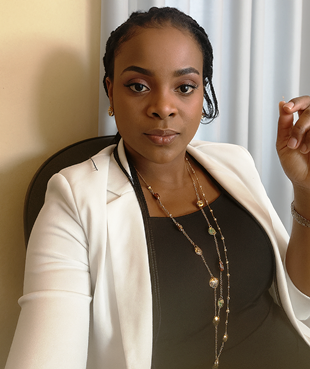Financial expert Julia Nwanya calls for comprehensive reform in Nigeria’s approach to financial education. Drawing from extensive corporate experience and grassroots education initiatives, Nwanya argues that Nigeria’s financial literacy challenges stem from structural inadequacies rather than individual failings.
In a country where over 60% of adults remain financially excluded despite being Africa’s largest economy, Julia Nwanya believes Nigeria’s financial literacy crisis reflects deeper systemic failures that require bold, comprehensive solutions.
RELATED: Fintech company opens PaxNaija Educational Centre to boosts financial literacy
“We’ve been treating symptoms instead of addressing root causes,” argues Nwanya, a financial analyst with over a decade of experience in Nigeria’s corporate sector. “The problem isn’t that Nigerians are incapable of understanding finance it’s that our educational, regulatory, and economic systems have consistently failed to prioritize financial empowerment.”
The Educational System’s Fundamental Flaw
Having transitioned from managing multi-million naira portfolios to frontline financial education, Nwanya identifies Nigeria’s educational curriculum as the primary culprit in perpetuating financial illiteracy.
“Our educational system teaches students to memorize mathematical formulas but never explains how compound interest works in real life,” she observes. “Students graduate without understanding basic concepts like inflation, investment diversification, or even how to read a bank statement. This is an institutional failure, not a personal one.”
Nwanya advocates for mandatory financial literacy courses starting from secondary school, arguing that financial education should be treated with the same urgency as mathematics or English language. “If we can teach trigonometry, we can certainly teach budgeting and investment principles,” she states.
The Regulatory Environment’s Double-Edged Impact
While acknowledging the Central Bank of Nigeria’s efforts to improve financial inclusion, Nwanya believes regulatory policies often create unintended barriers to financial literacy.
“Complex banking procedures, high minimum balance requirements, and excessive documentation requirements discourage many Nigerians from engaging with formal financial institutions,” she explains. “How can we expect people to develop financial literacy when the system itself is designed to exclude them?”
She particularly criticizes the proliferation of unregulated investment schemes that exploit financially vulnerable populations. “When legitimate financial products are inaccessible or poorly explained, people naturally gravitate toward get-rich-quick schemes. The regulatory response should be to make legitimate financial services more accessible, not just to ban fraudulent ones.”
Cultural and Gender Dimensions
Nwanya’s work with women’s organizations has revealed how cultural factors compound Nigeria’s financial literacy challenges, particularly for women and young people.
“In many Nigerian communities, financial decision-making is still viewed as the exclusive domain of men,” she notes. “Women are often excluded from financial discussions, then blamed for making poor financial choices. This is a cultural contradiction that undermines half of our population’s economic potential.”
She advocates for community-based financial education programs that address these cultural barriers directly. “Financial literacy education must be culturally sensitive and gender-inclusive to be effective. One-size-fits-all approaches ignore the real social dynamics that influence financial behavior.”
The Technology Opportunity
Despite the challenges, Nwanya sees significant potential in Nigeria’s rapidly expanding digital financial services sector.
“Fintech has democratized access to financial services in ways traditional banks never could,” she argues. “Mobile money platforms, digital lending, and online investment platforms are creating new pathways to financial inclusion. The question is whether we’re providing adequate education to help people navigate these new opportunities safely.”
She emphasizes the need for digital financial literacy programs that keep pace with technological innovation. “We cannot allow the digital divide to become a financial literacy divide. Every Nigerian with a smartphone should have access to quality financial education content.”
The Economic Cost of Financial Illiteracy
Drawing from her corporate finance experience, Nwanya frames financial illiteracy as a macroeconomic problem with national implications.
“Financial illiteracy constrains domestic savings, limits investment capital, and reduces economic growth,” she explains. “When people cannot effectively manage their finances, they cannot contribute to economic development. This is particularly critical for a developing economy like Nigeria’s.”
She points to research showing that countries with higher financial literacy rates tend to have more stable financial systems and stronger economic growth. “Nigeria’s financial literacy crisis is not just a social issue it’s an economic development challenge that requires policy-level intervention.”
A Call for Systemic Change
Nwanya’s prescription for Nigeria’s financial literacy crisis involves coordinated action across multiple sectors.
“We need educational reform, regulatory innovation, cultural change, and technological integration all working together,” she argues. “Piecemeal approaches will continue to produce piecemeal results.”
Her proposed solutions include:
Educational Reform: Mandatory financial literacy curricula in schools, teacher training programs, and integration of practical financial skills into existing subjects.
Regulatory Innovation: Simplified banking procedures, reduced barriers to financial service access, and stronger consumer protection for financial products.
Cultural Initiatives: Community-based education programs that address cultural barriers and promote inclusive financial decision-making.
Technology Integration: Digital platforms that provide accessible, culturally relevant financial education content in local languages.
The Path Forward
As Nigeria continues to grapple with economic challenges, Nwanya believes financial literacy represents both a critical need and a significant opportunity.
“Financial literacy is not just about personal empowerment it’s about national development,” she concludes. “A financially literate population is better equipped to participate in economic growth, more resilient during economic downturns, and more capable of building generational wealth.”
Her vision extends beyond individual financial knowledge to encompass broader economic transformation. “When Nigerians understand how to save, invest, and build wealth, the entire economy benefits. Financial literacy is ultimately about building a more prosperous and equitable society.”
For Nwanya, addressing Nigeria’s financial literacy crisis requires the same strategic thinking and systematic approach that characterizes successful corporate finance initiatives a perspective informed by her unique position at the intersection of academic research, industry experience, and grassroots education.
Julia Nwanya is a distinguished Nigerian finance professional currently serving as a Financial Analyst at Ibeto Group in Lagos, where she specializes in oil and gas financial operations. Her career began at Cutix PLC as Senior Accountant, managing substantial capital and vendor relationships. Beyond her corporate achievements, Julia demonstrates strong community commitment through volunteer work with autism foundations, financial literacy crisis , and entrepreneurial mentoring with organizations like the WAAW Foundation. She holds a Bachelor’s degree in Economics from Madonna University, Nigeria, and has received multiple awards including Employee of the Year at Ibeto Group, establishing herself as a notable figure in Nigeria’s finance sector.






























